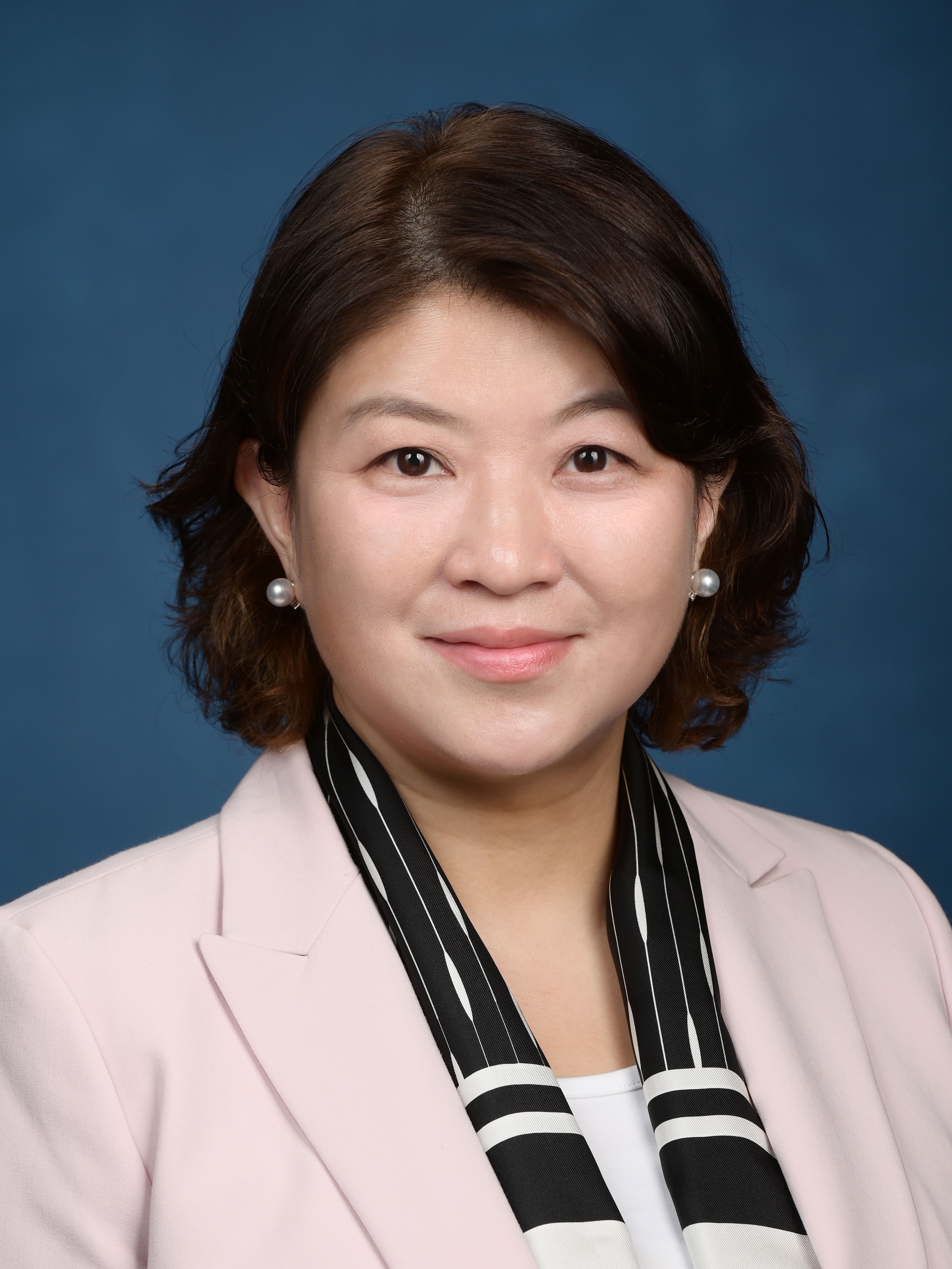
Biography
Dr. LEE is the Under Secretary of Health Bureau, the Hong Kong Special Administrative Region since July 2022. She was the Director of the Strategy and Planning Division at the Hospital Authority administration before the current position. The Hospital Authority provides public healthcare services to the 7 million Hong Kong population through 27,000 beds in 43 public hospitals. The scope of her works includes strategy, service, capital and annual planning for the whole Hospital Authority. The current projects include the Hong Kong Children’s Hospital, Queen Mary Hospital, United Christian Hospital, Kwong Wah Hospital, and the Hospital at Kai Tak etc.
She is trained as anaesthesiologist in Queen Mary Hospital focusing on liver transplantation, pain management, electronic anaesthetic record system and simulation training. In 2008, she started her career in administration, first in Patient Safety and Risk Management as the Head of the Patient Safety and Risk Management Department in the Hospital Authority administration. The Department identifies clinical risks through incident management and the annual risk registration exercises, through which corporate strategies and risk reduction programmes are formulated, and quality improvement programmes in individual hospitals and clusters are facilitated and monitored. She then works in the Division of Strategy and Planning for public healthcare services development since 2011. In 2015, she also takes up the position of Deputizing Hospital Chief Executive of the Buddhist Hospital, overseeing the operations of the hospital as well as its refurbishment works.
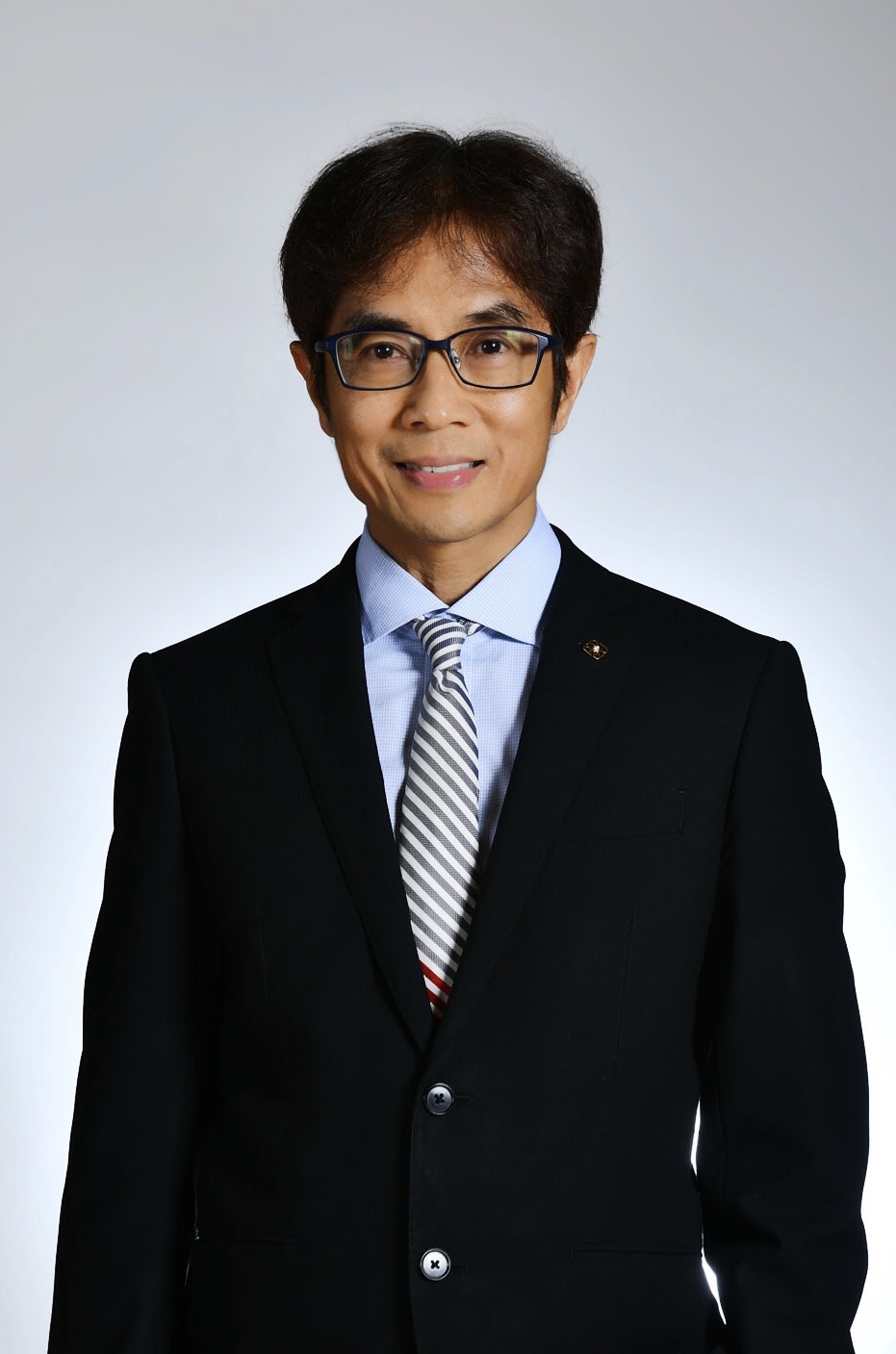
Healthcare Financing is the Key to Healthcare Systems Sustainability: The Case of Hong Kong
Biography
Prof. Peter P. Yuen is Dean of the College of Professional and Continuing Education (CPCE) of The Hong Kong Polytechnic University (PolyU). He is also Professor of PolyU’s Department of Management and Marketing. He received his Bachelor of Arts degree in Cellular and Molecular Biology and Master in Business Administration degree from the State University of New York at Buffalo, USA, and his Doctor of Philosophy degree in Health Economics from the University of Birmingham, UK.
Prior to his appointment as Dean of CPCE, Prof. Yuen held a number of management positions at PolyU, including Associate Vice-President (Management), Director of the Public Policy Research Institute, and Head of the Department of Management. He was also the founding Director of the Doctor of Business Administration programme in the Faculty of Business.
Prof. Yuen’s research mainly focuses on public policy formulation and evaluation, and health services management. He is the Co-Editor-in-Chief of Public Administration and Policy and an Editorial Committee member of Asia Pacific Journal of Health Management. He was also a consultant for the Hong Kong Special Administrative Region (HKSAR) Government and the Bauhinia Foundation on a number of public policy related projects including the West Kowloon Cultural District, Sustainable Built Environment, Subsidised Homeownership, Managed Care in Hong Kong, and Health Systems Reform.
Prof. Yuen is currently the immediate Past Chairman of the Federation for Self-financing Tertiary Education (Hong Kong). He has served as a member of the HKSAR Government Manpower Development Committee, Health and Medical Development Advisory Committee, and the Committee on Self-financing Post-secondary Education. He is a founding Fellow of the Hong Kong College of Health Services Executives, and an Honorary Fellow of the Australian College of Health Services Management. He once served as Vice-President of the Chinese National Institute of Health Care Management Education, and President of the Hong Kong Public Administration Association.
Abstract
Broad environmental and socio-economic factors impinging on the healthcare system are first discussed. It then explores two major factors affecting healthcare system sustainability – population ageing and medical inflation. The various health financing components are then examined in light of population ageing and medical inflation. It points out that the situation is further aggravated by inefficiencies inherent in most healthcare systems, creating huge challenges for health systems sustainability. It concludes that a major change in health care financing is necessary. The case of Hong Kong is used as an illustration.
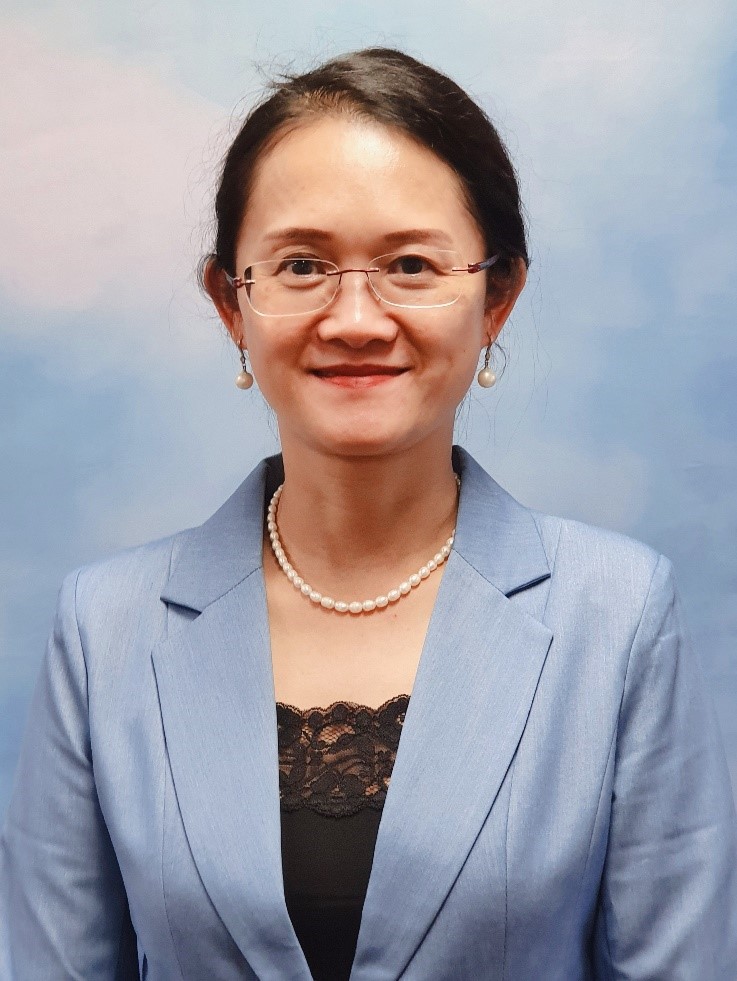
Biography
Dr Liang is a leading researcher in health service management competency studies and the leader of the Management Competency Assessment Partnership (MCAP) Program, which has resulted in the development and validation of an evidence-based Managerial Competency Assessment Tool. The MCAP Tool can assess the competence of middle and senior level managers working in the health sector and provide evidence to guide the direction of management training and development. In the past three years. Dr Liang has been working with partners in China, Thailand and Iran to develop the capacity in health service management training, education and research in these countries.
As President of the Society for Health Administration Programs in Education, Dr Liang has played a leading role in shaping the health service management training and development in Asia Pacific.
In addition to the outstanding management competency research strength, Dr Liang also has expertise and extensive experience in teaching and researching in the areas of evidence-informed decision-making, health management workforce development, healthcare quality and safety, and program planning and evaluation.
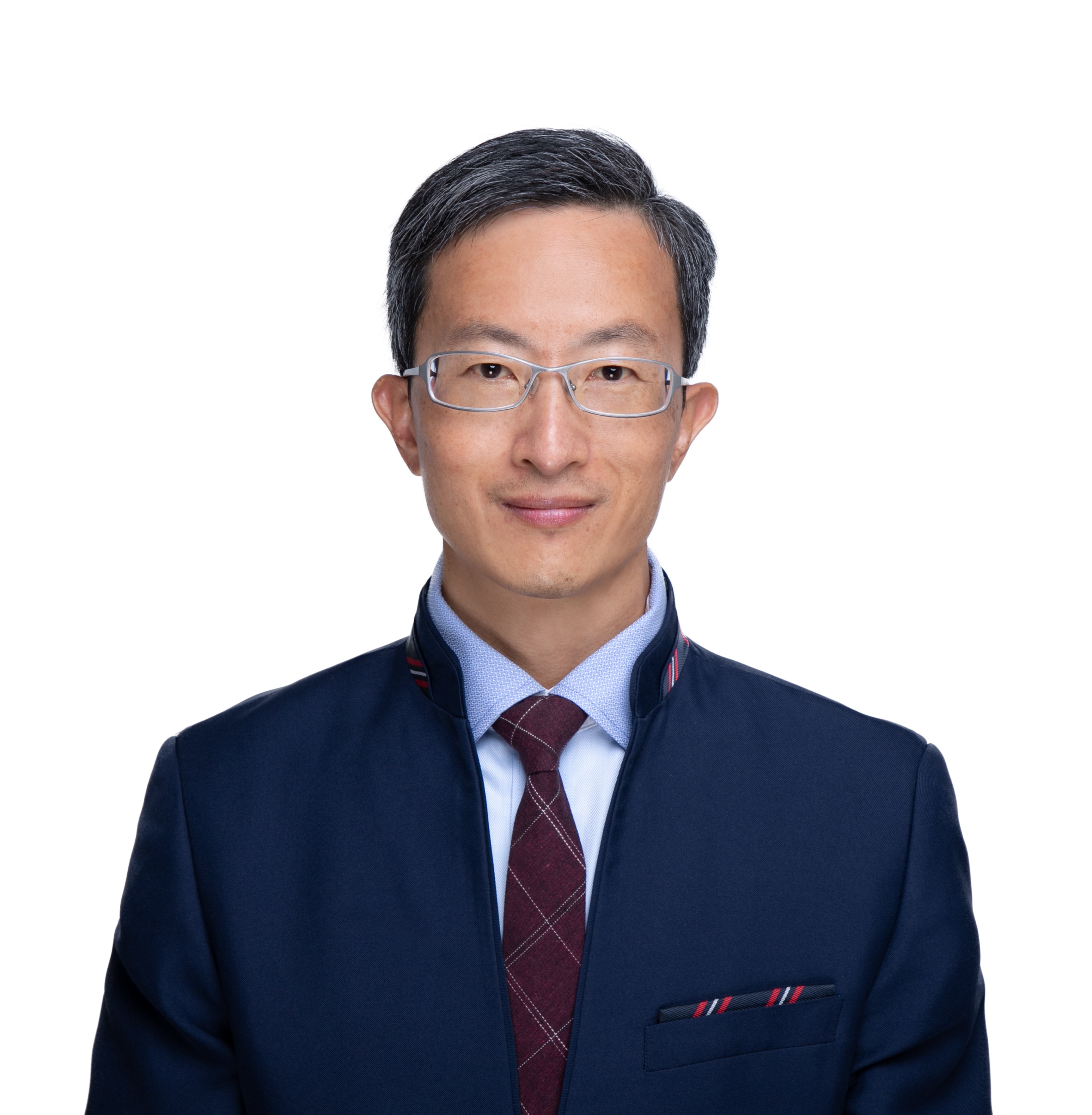
Biography
Dr. David Lam is the Medical and Health representative of the Legislative Council of HKSAR. He is a surgeon by profession. Having graduated in 1991 from the Chinese University of Hong Kong, he qualified as a Specialist in General Surgery in 1998. With respect to public services, he is a Member of the Hong Kong Council for Smoking and Health. He has previously served as Member of the Medical Council of Hong Kong, the Health and Medical Development Advisory Committee of the Food and Health Bureau and several Government committees related to VHIS, Private Healthcare Facilities Regulation and Medical Device. During COVID pandemic, he was Medical Director of the QES Vaccination Centre.

Health Care Systems Sustainability: The Role of Health Care Management Education and Continuing Professional Development
Biography
Professor Neale Fong has more than 35 years' experience in medical, health care and aged care leadership roles. He is currently the Chief Executive Officer of Bethesda Hospital, Chair of the Western Australian Government Country Health Service Board, President of the Australasian College of Health Service Management, and a Non-Executive Director of ASX-listed companies Little Green Pharma and Intelicare Ltd, and the Australian Government Digital Health Collaborative Research Centre. He is an adjunct Professor of Healthcare Leadership at Curtin University and was Project Director for the establishment of the Curtin Medical School. He was formerly the Director General of the WA Department of Health and Chief Executive Officer of St John of God Hospital Subiaco. He currently consults widely through Australis Health Advisory to health clients in governance, implementation of reform and change management, developing strategic directions and leading turnarounds. He holds Bachelor’s degrees in Medicine and Surgery, a Masters in Business Administration from the University of WA and a Masters in Theological Studies from the University of British Columbia.
Abstract
What will ensure our health ecosystems are functioning at optimal levels into an uncertain and complex future? Sustainability is the current “buzz-word” and covers many areas of endeavour, but it is the managers and leaders, and their multilayered competencies , who will most directly impact sustainable health organisations. Prof Fong will explore the role of leadership (and leaders), in the progress and development for sustainable health care systems and the need for continual investment in learning, education and career support.
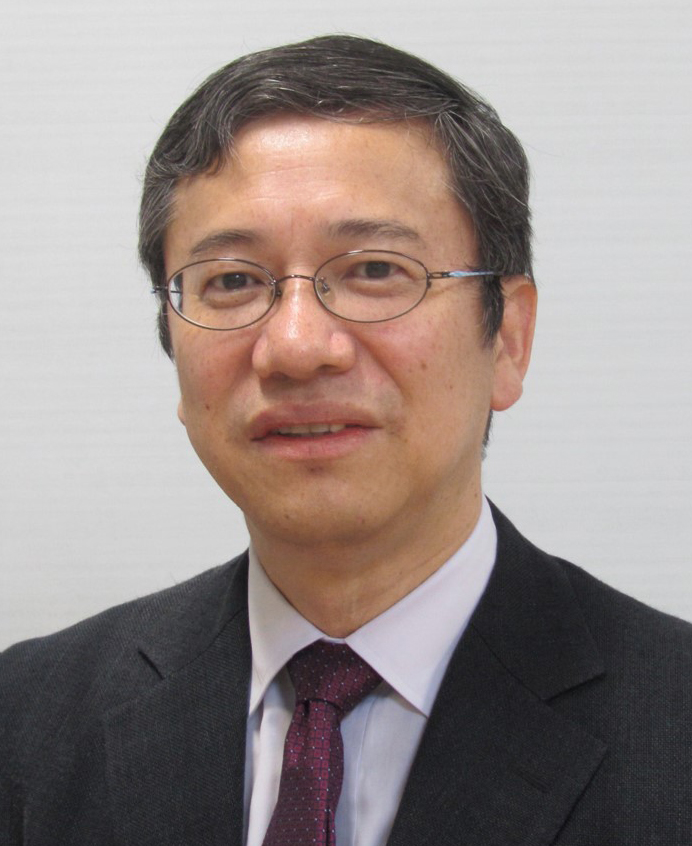
Redefining Healthcare Sustainability: Adapting to Aging Populations and Shifting Care Needs
Biography
Prof. Hasegawa is a Professor and Chair of the Division of Health Policy and Health Service Research Department of Social Medicine at the Toho University School of Medicine of Japan. He had his medical education at the Tokyo University School of Medicine, where he also received his Doctor of Philosophy. He was previously a Resident at the Tokyo University Hospital in Internal Medicine.
He is a member of the Japanese Society of Public Health, Japanese Society of Hygiene, Japanese Society of Transplantation, Japanese Society of Hospital Administration, and Japanese Society of Healthcare Management. He also holds membership of the following specialist councils or committees: Ministry of Labour, Health and Welfare, Committee on Disclosure of Healthcare Information, Committee on the Administration of Healthcare Organisations, Cabinet Office Council for Regulatory Reform, Office for the Promotion of Regulatory Reform and Private Finance Initiative, Japan Council for Quality in Health Care Center for Medical Accident Prevention (vice-chair).
Prof. Hasegawa’s research background includes health policy, health economics, and quality assessment of health care.
Abstract
The discussion on the sustainability of conventional healthcare systems has traditionally focused on predicting the increase in resources needed to accommodate the growing elderly population and minimizing the cost increase per unit demand through efficiency. Recently, there has been a shift towards advocating for reallocating more resources from acute care to chronic care and caregiving, considering the higher proportion of medical needs and caregiving requirements among the elderly. This shift is drawing attention as a fundamental discussion on healthcare resource allocation. To make future discussions on healthcare systems more constructive, two points should be noted. Firstly, while it was previously assumed that the necessary resources would increase but remain quantitatively available, the declining birth rates experienced in East Asia post-COVID-19 indicate that securing resources, especially human resources, is now difficult. It is necessary to reorganize healthcare systems based on at least the assumption of the human resources available in the future. Secondly, in healthcare service delivery, the emphasis is shifting from inpatient care at acute care hospitals to outpatient care and home-based care to accommodate the elderly. However, many of the quality and safety methods in traditional medicine are based on knowledge gained from acute care, and it is not yet clear if they are effective in outpatient and home-based care. There is a need to examine the quality and safety of healthcare, focusing on outpatient and home-based care.

Political Economy of Health
Biography
Gordon G. Liu, Ph.D., Peking University (PKU) BOYA Distinguished Professor of Economics at the PKU National School of Development, Dean of PKU Institute for Global Health and Development, and an elected member of the Chinese Academy of Medicine, and Director of PKU China Center for Health Economic Research. Professor Liu currently serves as the Chinese co-organizer of the U.S.-China Track II Dialogue on Healthcare, and sits on the State Council Health Reform Advisory Commission. He was previously on the fulltime faculty at the University of Southern California, UNC-Chapel Hill, and PKU Guanghua School of Management.
He has served as associate editor for several academic journals including China Economic Quarterly and Health Economics, and the editor-in-chief for the China Journal of Pharmaceutical Economics.
Abstract
From a perspective of political economy, Dr. Liu will address several hotly debated healthcare issues facing China and around the world. These issues include healthcare inflation, healthcare as public goods, healthcare priority setting, pricelessness of life, and planetary health.
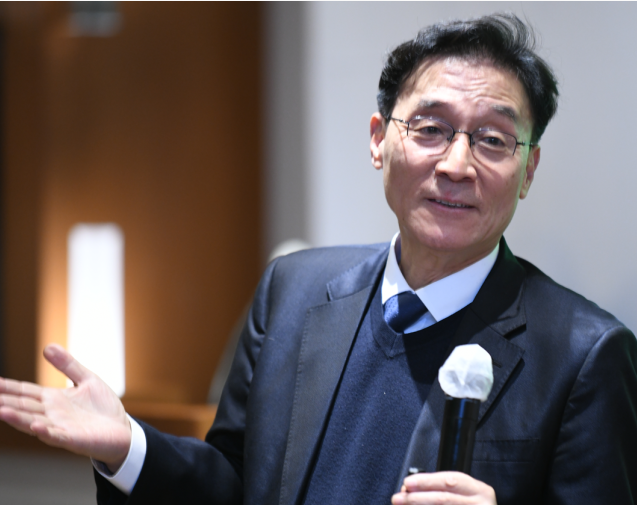
Preparing National Health Systems to Cope with the Impending Super Ageing and Its Associated Complexities in Korea: Towards a More Sustainable Health System
Biography
Prof. Dongwoon HAN, MD, MPH, PhD (in health service management) is a Professor at College of Medicine, Hanyang University, College of Medicine, and the Chairperson of Global Health and Development. He was also a chairperson of both the Department of Preventive Medicine, College of Medicine, and the Department of Medical Administration at Graduate School of Public Policy. He is also currently the Director of Institute of Health Services Management, Hanyang University. He received a bachelor’s degree in medicine from College of Medicine, Hanyang University College of Medicine, master’s degree (MPH) from Seoul National University, Graduate School of Public Health, and a doctoral degree from The University of Birmingham (UK). Prof. Han was a member of WHO working group for various health related topics including traditional medicine. For many years, he has worked as short-term consultant at many developing countries, Vietnam, Nepal, Cambodia, Iraq, Afghanistan, Peru, Honduras and so on. In his country, he has advised national and local governments on health promotion, health planning, and Official Development Assistant (in Health). Since 2004, he has been working to establish a public health programme using traditional Korean medicine in public health care system. Prof. Han is serving as Director of the National Traditional Korean Medicine Research and Development Centre. From 2010 to 2012, he had also directed a research team on the evaluation of Korean Case Payment System (KCPC) funded by the Health Insurance Review Agency (HIRA).
Abstract
As Korea's population ages rapidly, the imperative to reevaluate and fortify the national health system becomes increasingly urgent. This brief presentation offers an overview of strategies and initiatives aimed at preparing the Korean healthcare system for the impending wave of ageing and its associated complexities. Key areas of focus include enhancing healthcare infrastructure, bolstering workforce capacity, refining financing mechanisms, and integrating technology and innovation. Furthermore, the importance of fostering collaboration among stakeholders and implementing community-based approaches is emphasized to ensure the sustainability and resilience of the healthcare system in Korea. By proactively implementing these measures and embracing a holistic approach, Korea can move towards a more sustainable healthcare system capable of meeting the evolving needs of its ageing population.
Preparing the Health Workforce for Health in the Age of Digital and AI
Biography
Dr Schaper is on a mission to fix healthcare. She is an internationally renowned digital health leader and passionate advocate for innovation of the health ecosystem at scale. She has 20 years’ experience as a catalyst at the intersection of innovation and health, including a 14 year tenure as CEO of the Australasian Institute of Digital Health. Dr Schaper has a background as an occupational therapist, a PhD in technology acceptance among health professionals, is a graduate of Stanford’s Executive Leadership Program, a Certified Health Informatician, a Salzburg Global Seminar Fellow and a Fellow of both the International Academy of Health Sciences Informatics and the Australasian Institute of Digital Health. Through her company, the Health Intelligence Agency, Louise advises companies, start-ups and governments on strategy, policy, commercialisation, and approaches to empower the health workforce and consumers. She is always online and yes, she has the coolest job!
Abstract
As we stand on the brink of a new era in healthcare, driven by the rapid advancements in digital technologies and artificial intelligence, the role of the health workforce is poised for a profound transformation. This presentation will explore how we need to prepare health professionals for the challenges and opportunities presented by these innovations.
We will delve into the core competencies required for a future-ready health workforce, including digital literacy, data analytics, and the ethical implications of AI in healthcare. Moreover, we will discuss the importance of fostering a culture of continuous learning and adaptability within healthcare organisations to support people and organisations to navigate through a world where constant technological change, at pace, is becoming the norm. The presentation will also address potential barriers to this transformation, such as resistance to change, the digital divide, and the need for robust policy frameworks to ensure equitable access and ethical use of AI.
Ultimately, this talk aims to provide a thought-provoking discussion for healthcare leaders, educators, and policymakers to equip the health workforce with the skills and knowledge necessary to thrive in an increasingly digital and AI-driven landscape. By preparing our health professionals today, we can ensure they are ready to deliver better, more efficient, and more personalised care tomorrow.
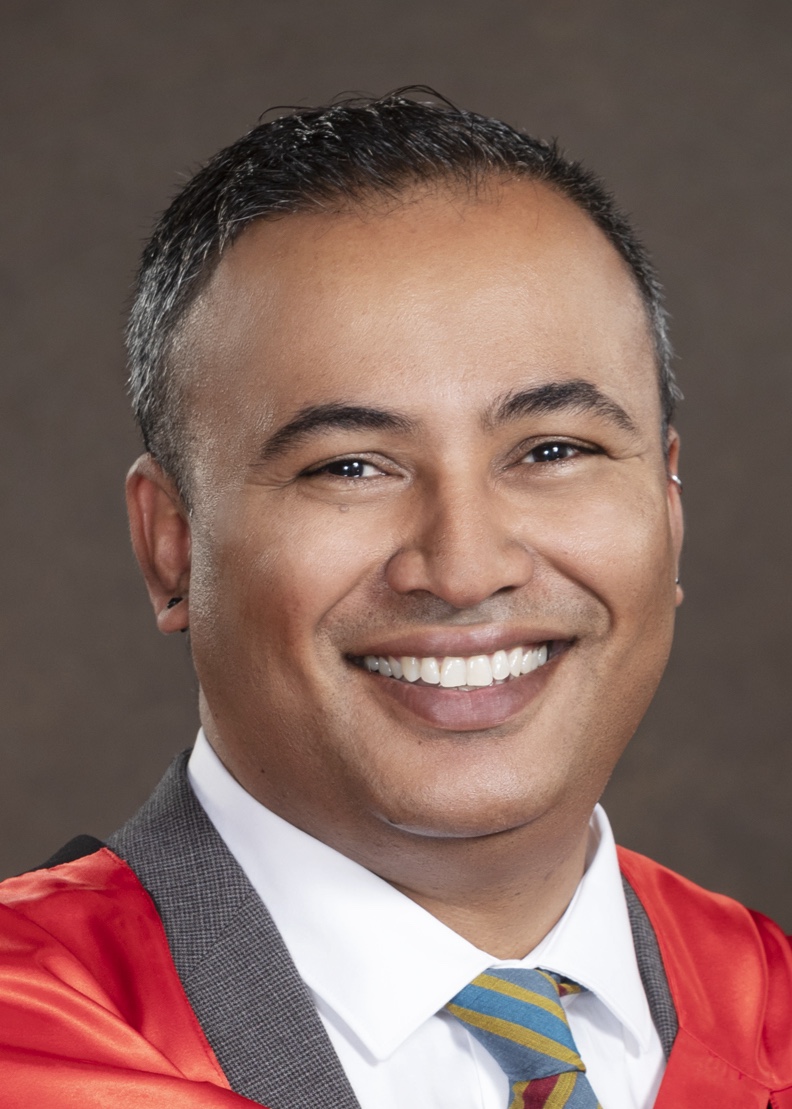
Designing Innovative Health Management Programmes for Sustainable Healthcare Systems
Biography
Dr Jalal Mohammed is an award-winning academic, consultant and health management specialist with over 17 years of experience in the education and health sectors. Jalal centres his practice around the learner. His particular interest in creating engaging technology-enhanced learning environments has won teaching excellence awards and international recognition through his role in advising the UNDP Pacific Office on e-Learning.
Jalal is a Senior Lecturer (Above the Bar) at the University of Canterbury. Previously, he was Head of the Department of Public Health at the Auckland University of Technology. He is also an Adjunct Professor with the University of Fiji. He is also an Executive Member of the Aotearoa Fiji Research Collective and founder of the Pacific Online Learning and Teaching Network, a community of practitioners across the Pacific committed to developing online learning and teaching in the region. He has also served on the National Council of the Public Health Association of New Zealand.
Jalal holds a doctoral degree in public health focusing on health systems and several Master’s degrees in Public Health, Education and Business Administration. Dr Mohammed is also a Fellow and Certified Health Executive of the Australasian College of Health Services Management and an Associate Fellow of the Higher Education Research and Development Society Australasia. He lives in Christchurch, New Zealand.
Abstract
There are increased calls for health management education to respond to the changing context and needs of healthcare. Not only does this entail shifts in content, but it also requires a broader consideration of how programmes are designed and delivered to ensure learner engagement and experience.
This presentation will explore innovation in the design and delivery of health management programmes. Dr Mohammed will discuss the need to understand the learner and the changing needs of today's learners to ensure that programmes are designed to improve learner experience and engagement. He will also discuss the roles of communities, stakeholders, and partners in the design of innovative programmes. Dr Mohammed will conclude with a discussion on creating technology-enabled learning spaces using a framework and tool for action.
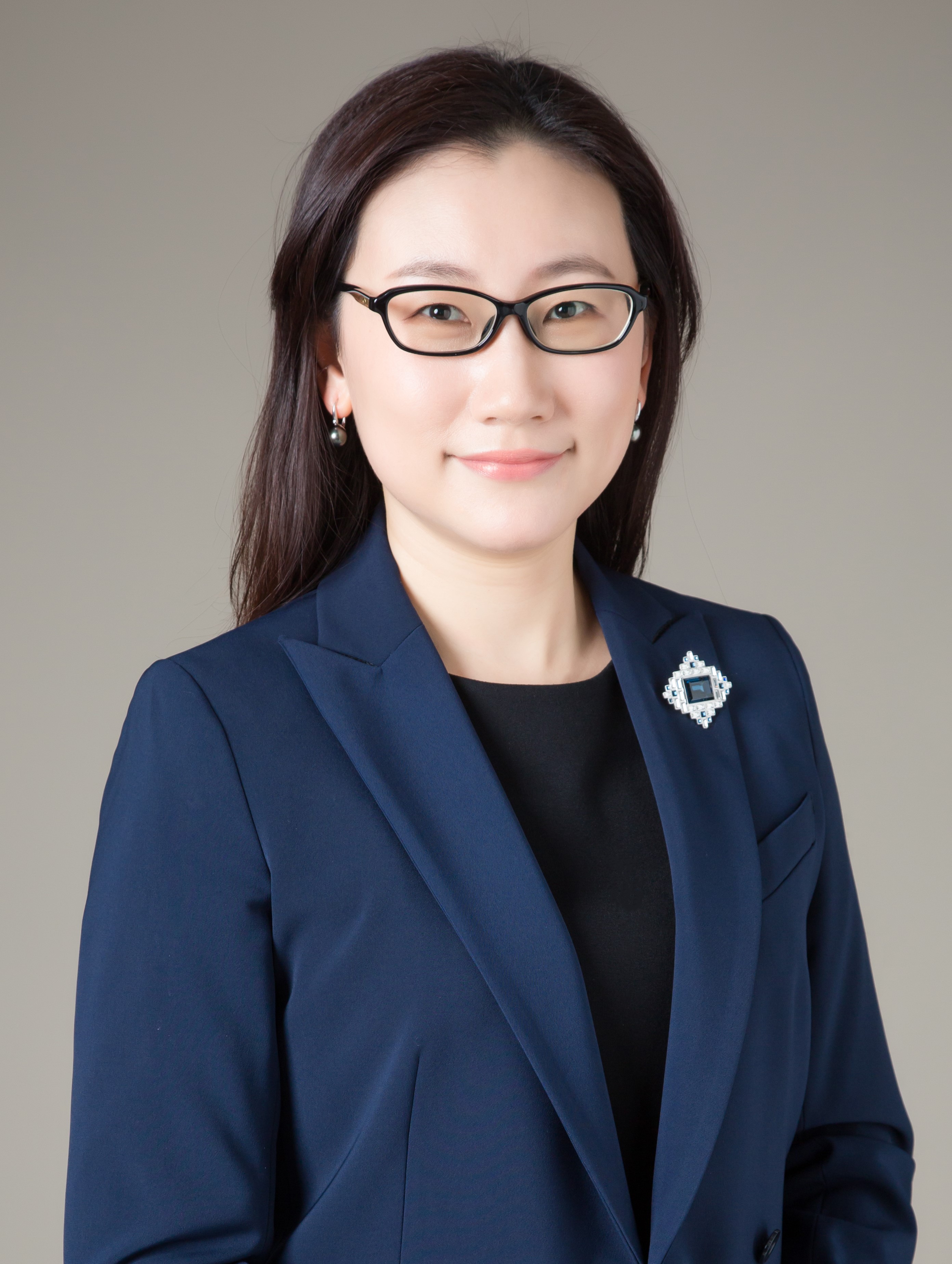
Evaluation of the Effect of Medical Consortium on Inpatient Services Utilization and Costs in Guangzhou City, Southern China——Analysis Based on a Difference-in-Difference Method
Biography
Professor Hui Zhang is Associate Professor in the Department of Health Policy and Management, School of Public Health, Sun Yat-sen University of China. Her research interests are health policy evaluation, health insurance reform, economic burden of diseases, and telemedicine evaluation. She is now the member of Health Insurance Professional Committee of the Chinese Society of Health Economics; the member of Health Services Management Division of the Chinese Preventive Medicine Association; and the member of Guangdong Province Society of Health Economics. She has got more than 10 grants including the National Natural Science Foundation of China; the Natural Science Foundation of Guangdong Province; China Medical Board Open Competition Research Project, and published more than 30 international and domestic journals such as Social Science & Medicine, BMC Health Services Research.
Abstract
Medical consortium, a typical model of integrated care in China, refers to a group of medical institutions or joint organizations formed by the integration of horizontal or vertical medical resources in different regions and types of medical institutions within a certain region. The purpose of establishing the medical consortium is to promote the sinking of high-quality medical resources, push forward the construction of hierarchical health system and two-way referral system, along with controlling the unreasonable increase in medical costs. Previous studies have found that the implementation of the medical consortium has achieved some progress in promoting primary treatment and two-way referral, improving the effectiveness of chronic disease management and enhancing the sharing of medical technology and resources among hospitals in medical consortium. However, the net effect of the implementation of medical consortium on the inpatient services utilization and costs from the perspective of the medical institutions has not been fully evaluated.
The purpose of this study was to analyze the effect of medical consortium on the inpatient services utilization and costs from the perspective of the medical institutions. This study also compares the differences in the effect of medical consortium on tertiary hospitals and secondary and lower-level hospitals. Furthermore, this study delves into the effect of medical consortium on the inpatient services utilization and costs for patients aged 60 and above, as well as patients with chronic diseases.
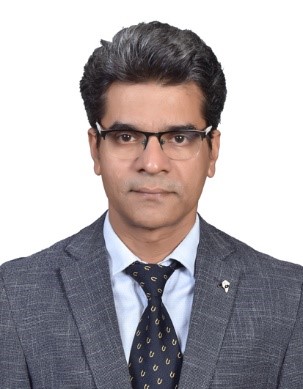
Health System Resilience and Sustainability in India: Opportunities and Challenges
Biography
Prof. (Dr.) Bhuputra Panda is a well-accomplished public health professional of national repute, with over two decades of teaching, training and practice in public health. He has a doctoral degree from TISS (Mumbai) and a Gold Medalist in Health Administration during his Master’s programme from the same Institute. He worked for about a decade on specific thematic domains and in international organizations, such as, Pathfinder International (adolescent reproductive health), Sightsavers International (eye care), CARE International and CINI (child health), and Ministry of Health, Govt of Odisha (capacity building). From 2010 onwards he is actively involved in the academic and research world (PHFI and currently in KIIT Deemed to be University) focusing more on health systems health services research, public health teaching, training and advocacy. His key domains of interest are: health systems and health services research, policy and governance in health, maternal and child health, heat stress, tobacco control and programme evaluation. He has collaborated with several international and national donor agencies, research organizations and academic institutions, including the BMGF, Tata Trusts, Govt of India - Ministry of Health, Govt of India - Ministry of AYUSH, UNICEF, Avanta Foundation, World Food Programme, Wellcome Trust, MMV, NHM Odisha, State governments of Odisha, Chhattishgarh, Maharashtra, West Bengal, Rajasthan and Madhya Pradesh. Dr Panda has substantial collaborative work with Access Health International, Harvard T.H Chan School of Public Health, University of Michigan, Johns Hopkins Bloomberg School of Public Health, Mahidol University School of Public Health, University of Sydney and Kent State University, USA.
Abstract
Health systems exist for delivery of healthcare services. Twenty-first century is marked by increasing instances of extreme climate related disasters, outbreak of epidemics and emergence of pandemics, thus the significance of resilient and sustainable health systems has gained momentum. A resilient health system exhibits the capacity to prevent, respond to and recover from acute and chronic crises; on the other hand a sustainable system ensures uninterrupted provision of essential health services in an equitable, efficient and environmentally conscious manner. In India, the Union government and the state governments are continuously striving to address the health system related bottlenecks through a series of well-thought-out interventions. However, several challenges continue to act as barriers to these efforts. For instance, high mortalities, morbidities and infectious diseases have declined in the last decade, while non-communicable diseases and life-style disorders have emerged as larger threats to the health system. The launching of AYUSHMAN BHARAT program by the Government of India is aimed at offering financial risk protection to a vast majority of the population while strengthening the health and wellness centres across the country that would focus on a basket of comprehensive primary care services inclusive of screening, identification, management and referral of cancer, cardiovascular diseases, hypertension, diabetes and mental health issues.
Over the last two decades, Odisha, an eastern Indian state with a population of 46 million has consistently dealt with several disasters, and has taken steps to build a more resilient and responsive healthcare systems. Being a disaster-prone state in India, Odisha has presented many success stories of dealing with cyclones and floods in the recent past. Use of technological advances in the domain of healthcare have fast transformed the ways and means of delivering healthcare services to India's diverse population. However, insufficient human resources in health, limited financing opportunities, and erratic interdepartmental coordination continue to pose challenges.
In conclusion, the presentation offers key perspectives on the significance of establishing robust health systems capable of effectively navigating through the nuances of delivering healthcare to India's billion plus population.
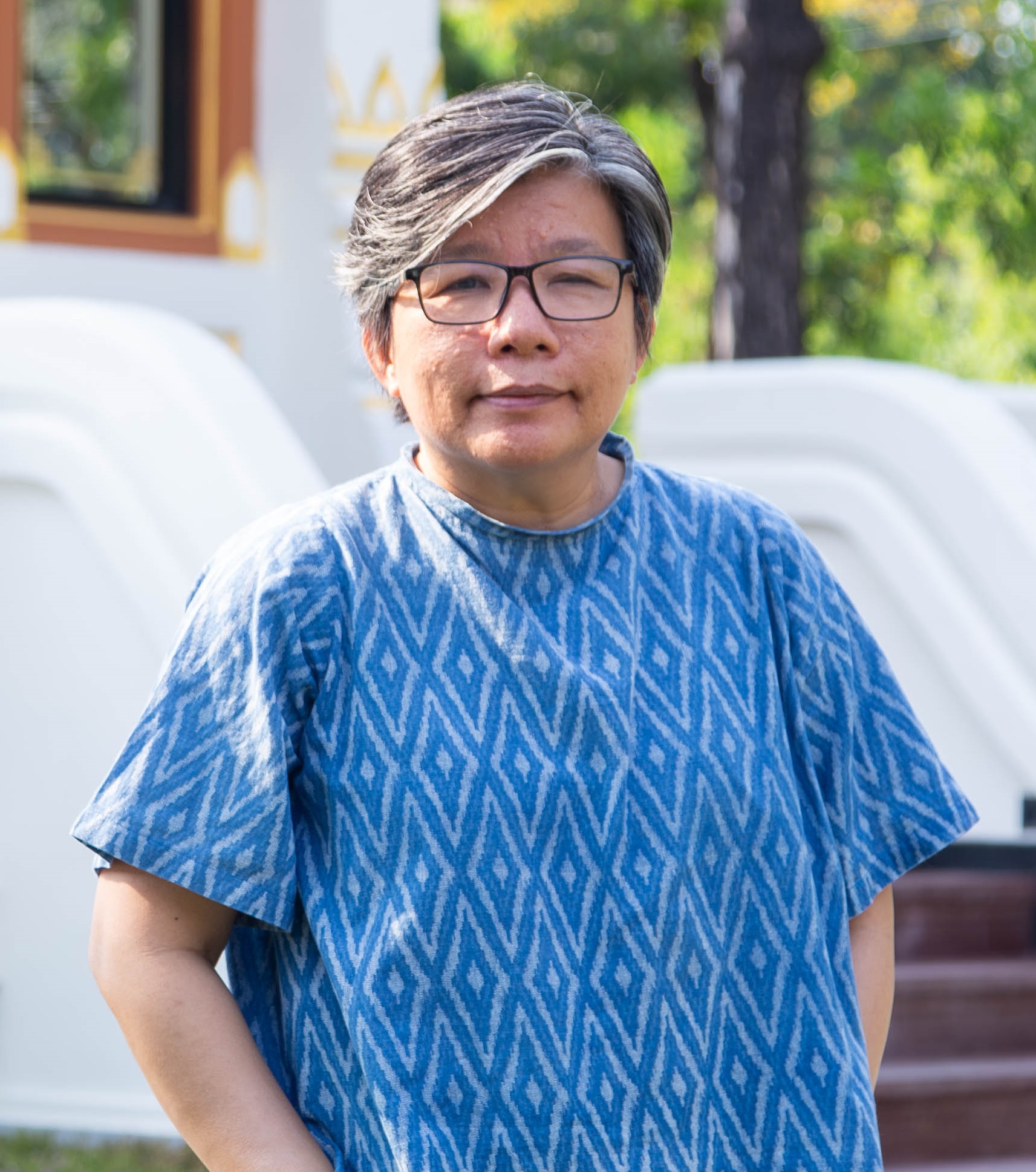
The Role of Primary Health Care in Sustaining the Health System During the Public Health Emergencies in Thailand
Biography
Dr. Tipayamongkholgul is the Acting Deputy Director for Research and Academic Affairs at the ASEAN Institute for Health Development, Mahidol University. Previously, she served as a public health officer at the Department of Disease Control within the Thailand Ministry of Public Health. In this role, she was instrumental in the Plan Formulation and Evaluation Section at the Bureau of AIDS, Tuberculosis, and Sexually Transmitted Diseases.
Her transition to Mahidol University followed the completion of her doctorate degree in Epidemiology from the College of Public Health at National Taiwan University. At Mahidol, she initially took on the role of Chair of the Master of Public Health Program, overseeing epidemiology-related courses, leadership and public health skill development, and universal health coverage initiatives.
Throughout her academic career, Dr. Tipayamongkholgul has made significant contributions to a variety of research areas, including infectious disease epidemiology, mental health epidemiology, program and policy evaluation, and implementation research. Her work continues to impact public health policies and practices.
Abstract
Primary Health Care (PHC) comprises four pillars; community participation, appropriate technology, support mechanism made available and intersectoral collaboration, plays a critical role in maintaining the resilience of health systems, during public health emergencies such as COVID-19.Amidst the public health challenges such as COVID-19, PHC serves as the frontline defense by providing essential healthcare services to the population. PHC facilities, including community-health workforces, health centers and community members, play a pivotal role in disease prevention, early detection, and management of COVID-19 cases.Through proactive surveillance, testing, and contact tracing, PHC helps to identify and isolate infected individuals, thereby mitigating the spread of the virus within communities. In conclusion, PHC plays a central role in sustaining the health system during the COVID-19 pandemic in Thailand. Strengthening PHC infrastructure, enhancing workforce capacity, and promoting community participation are essential strategies to ensure the resilience and effectiveness of PHC in pandemic preparedness and response.